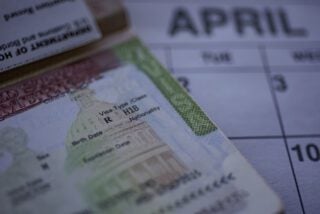The Jewel of Southeast Asia is a Dream Destination for Expats
 If you’re thinking about moving to Indonesia, you’re not alone. The jewel of Southeast Asia is known for its stunning beaches and tropical weather, making it a top destination for expats and visitors from every corner of the globe. It also offers a lower cost of living than what you will find in Europe or North America, which gives it even more appeal for those looking to enjoy a slice of paradise without breaking the bank.
If you’re thinking about moving to Indonesia, you’re not alone. The jewel of Southeast Asia is known for its stunning beaches and tropical weather, making it a top destination for expats and visitors from every corner of the globe. It also offers a lower cost of living than what you will find in Europe or North America, which gives it even more appeal for those looking to enjoy a slice of paradise without breaking the bank.
To help you decide if Indonesia is the right choice for you, this article covers everything you need to know, from visa requirements and the job market to the best places to live and more.

Find the Best International Insurance
- Compare multiple quotes and coverage options
- Work with an insurance expert at no additional cost
- Find the best plan for your needs and budget
Legal Requirements for Moving to Indonesia
The Indonesian government requires foreigners to follow specific procedures if they plan to live or work in the country. Here’s a closer look at the visa and health insurance requirements.
Health Insurance Requirements for Indonesia
If you are employed in Indonesia, you must register for the national health insurance program, which is known as JKN. You become eligible to enroll in this program through your employer after working in the country for six consecutive months.
However, it’s important to note that Indonesia’s insurance options are limited, and the public healthcare system is generally considered to be of poor quality. The World Health Organization (WHO) ranks it 92nd in the world.
For these reasons, many expats choose to purchase private health insurance to ensure better coverage for their medical expenses. You can find more information about Indonesia’s health insurance requirements for immigrants later in this article.
Do You Need a Visa When Moving to Indonesia?
Yes, foreigners must apply for a visa to move to Indonesia. You can obtain a tourist visa upon arrival, but it won’t allow you to work and is only valid for 30 days.
If you plan to stay long-term, you will need to apply for an entry visa (VITAS) before arriving in the country. Once your entry visa is approved and you’ve entered Indonesia, you can apply for a KITAS (also known as ITAS) temporary stay visa.
Types of Temporary Residence (KITAS) Visas in Indonesia
The KITAS visa is a temporary stay permit that allows foreigners to live and work in Indonesia for six to 12 months, after which it must be renewed. After holding a KITAS visa for six consecutive years, you can apply for a KITAP permanent stay permit, which allows you to work and reside in the country for more than five years.
The Indonesian immigration office issues four types of KITAS temporary stay visas. Below is a brief overview of the visa requirements for each type of KITAS and who should apply.
KITAS Work Visa
 To obtain a KITAS work visa, you must have a valid passport and sponsorship from an Indonesian company that wishes to employ you. Your employer will handle most of the paperwork and coordinate with immigration authorities on your behalf.
To obtain a KITAS work visa, you must have a valid passport and sponsorship from an Indonesian company that wishes to employ you. Your employer will handle most of the paperwork and coordinate with immigration authorities on your behalf.
It is important to make sure that your employment contract complies with local regulations. You may also need to undergo medical exams or background checks as part of the visa application process.
Once issued, you’ll typically need to renew your KITAS work visa annually, depending on your employment terms and the specific type of KITAS you have.
KITAS Study Visa
Foreigners who want to study abroad in Indonesia must first apply for a study permit from the Indonesian Ministry of Education.
To apply, you need to provide:
- A letter of recommendation and acceptance from the university you plan to attend
- Your academic transcripts
- Three copies of your passport
- Two passport-sized photos
- A Letter of Financial Guarantee (to prove you can afford tuition)
- A health certificate
Once you have your study permit, you can apply for a VITAS entry visa. You will need to submit the same documents as you did for the study permit and pay an application fee.
Upon arrival in Indonesia, you must exchange your VITAS for a KITAS by presenting a copy of your visa and study permit. The last step is to register with the local police headquarters.
It is important to note that the KITAS study visa does not allow you to work in Indonesia.
KITAS Family Visa
If you are married to an Indonesian citizen or are the child of one, you can apply for a family KITAS to reunite with your family in Indonesia. This visa allows you to live in the country for up to one year and is renewable.
To apply for a family KITAS, you will need:
- Proof of your relationship to the Indonesian citizen (such as a marriage certificate or birth certificate)
- A valid passport
- Copies of your spouse’s or parent’s Indonesian identity documents
- A letter of sponsorship from your Indonesian spouse or parent
- Recent passport-sized photos
- A health certificate
Your Indonesian spouse or parent will be your sponsor and handle most of the visa paperwork. After receiving your family KITAS, you must register with the local immigration office and follow any additional local rules.
Keep in mind that the family KITAS does not allow you to work in Indonesia; you will need a separate work permit if you want to work.
KITAS Retirement Visa
To qualify for a retirement visa in Indonesia, you must be 55 or older and not plan to work while living in the country. You’ll also need to provide proof that you have enough savings or retirement income to support yourself without a job.
Your pension or investments need to provide a minimum income of at least $3,000 per month.
Other requirements for the Indonesian retirement visa include:
- Proof of coverage under an Indonesian health insurance plan
- A copy of the signed rental lease for the residence where you plan to stay
- A letter stating that you have no intention to work in Indonesia and that you will hire a domestic maid or driver
Retirement visas are only available to citizens of specific countries. Most citizens from European countries, Australia, and the United States are eligible. Therefore, if you are a citizen of another country, you should check with your nearest embassy or consulate to confirm your eligibility.
Becoming a Permanent Resident or Citizen of Indonesia
Indonesia’s permanent resident permit is called the KITAP. To be eligible for this, you must hold one of the KITAS temporary residence permits for at least six consecutive years. The KITAP is valid for five years and is renewable.
It is important to be aware that Indonesia does not allow dual citizenship. The only exception is for individuals who have one Indonesian parent and one non-Indonesian parent.
If you wish to become an Indonesian citizen, you will need to renounce your citizenship in your home country. The naturalization process is also thorough, and you may need to demonstrate proficiency in the Indonesian language and meet other legal requirements.
Read More: Top 15 Countries With Digital Nomad Visas

Staying Safe After Moving to Indonesia
As an expat, it’s important to understand the risks of living in a new country and have a safety plan. While Indonesia is not an especially dangerous country, it’s good to be aware of a few key factors.
Indonesia’s National Emergency Number
If you ever need help from emergency personnel, Indonesia’s national emergency number is 112. If your emergency is medical, the medical emergency number is 118.
Natural Disasters
Indonesia is located in the “Ring of Fire,” where there is more volcanic activity than anywhere else on earth. The country is susceptible to natural disasters such as earthquakes, tsunamis, and volcanic eruptions.
To stay safe, check local climate and weather reports daily. Sign up for emergency alerts and familiarize yourself with evacuation procedures in your area.
Terrorism
Although terrorism isn’t a common occurrence in Indonesia, there have been several incidents, including bombings and shootings related to terrorism since 2020. The most well-known of these was in the tourist district of Kuta, in the province of Bali, in October 2002.
To stay informed and safe, follow the news and the advice of local authorities. You can also register with your embassy or consulate for updates and emergency assistance. This is good practice when traveling or living in any country.
Transportation
Traffic congestion is common in Indonesia’s big cities. Sidewalks are rare, and many roads are not pedestrian-friendly. Scooters are also very popular, so be cautious when walking in urban areas.
For safer travel, consider using ride-sharing apps or public transportation. If you are driving or riding a scooter, always stay alert, follow local traffic rules, and be mindful of pedestrians to avoid accidents.
Crime and Civil Unrest
Incidents of violent and property crimes in Indonesia are generally moderate or low. According to the Global Safety Index, Jakarta, the capital city, has less than one homicide per year. Most crimes involve theft, corruption, or bribery and are more common in urban areas than smaller towns and villages.
To stay safe, remain aware of your surroundings, avoid risky areas, and report any suspicious activity to local authorities. It’s also a good idea to stay informed about local crime trends and follow safety recommendations from local officials.
Food, Air, and Water
Indonesian tap water is unsafe to drink, so always opt for boiled, filtered, or bottled water instead of drinking straight from the tap.
In larger cities, high air pollution can lead to respiratory issues. To stay safe, limit your time outdoors in crowded areas and consider using air purifiers indoors. Keep an eye on air quality reports and follow health guidelines to protect yourself.
Get our monthly newsletter filled with tips and information for people living, moving, and traveling outside of their home country.* *By submitting your email, you agree to receive monthly updates for expats, digital nomads, retirees, and more.
The Best Places in Indonesia to Live
From bustling cities to peaceful beach towns, Indonesia has many great places to call home.
To help you find the right spot, we’ve listed the best and safest locations for expats to live in Indonesia. We considered factors like safety, amenities, housing, and cost of living in Indonesia to make your decision easier.
Jakarta
As Indonesia’s capital and biggest city, Jakarta offers the best job opportunities for foreigners and boasts a great nightlife scene. The city’s job market includes positions in finance, manufacturing, and industry.
While Jakarta has a higher cost of living than most cities in the country, housing remains relatively affordable. For example, a one-bedroom apartment typically costs around $460 per month.
Traffic congestion is common and walkability is limited, but Jakarta’s expanding public transportation system includes a rail network, which makes getting around more convenient. The city also boasts some of the best hospitals in the country, including Mayapada Hospital, Columbia Asia Hospital, and RSPI.
Read More: Hospitals in Indonesia
Canggu, Bali
Located in the balmy Indonesian province of Bali, Canggu is home to one of the country’s largest English-speaking expat communities.
Canggu is known for its many tropical beaches, including Echo Beach and Batu Bolong Beach, which are popular with surfers. Rapid growth in recent years has also led to improvements in local infrastructure, including new cafes, restaurants, and shops.
The city offers amenities such as fast internet access and affordable living accommodations. For instance, most apartments in Canggu are available to rent for $300 to $1,000 per month, depending on size and location.
Canggu is home to several international schools that offer curricula in English, catering to expat families with children. There are also several clinics and wellness centers in the area, but for more serious medical needs, you may need to visit hospitals in nearby cities like Denpasar.
Semarang, Central Java
Indonesia’s major port city of Semarang offers many job opportunities for foreigners, particularly in the industrial sector. It is less congested than Jakarta and has lower crime rates, making it an appealing option for those looking to move to Indonesia.
The city is developing fast, and new housing projects are underway to meet the growing demand. As a result, there are many budget-friendly apartments with rent ranging from $200 to $820 per month. Most expats live in neighborhoods such as Jalan Sultan Agung, Jalan Kawi, and Jalan Sumbing.
Semarang has a lower cost of living than Jakarta but still offers many Western conveniences, including shopping malls, dining options, and international schools. There are also reputable hospitals and clinics, including RSUP Dr. Kariadi and RSUD Semarang, which provide a range of medical services.
The Safest Places in Indonesia to Live
Safety is a key factor when choosing where to live in a foreign country. Below are some of the safest places to live in Indonesia that also offer many of the same qualities found in the cities mentioned above.
Ubud, Bali
Located in the heart of Bali, Ubud is one of the safest towns in Indonesia. It is an ideal spot for nature lovers who want to be surrounded by stunning waterfalls and lush greenery.
Ubud gained worldwide fame as the filming location for the movie Eat Pray Love, which showcased its beautiful landscapes and spiritual charm. Many digital nomads and expats now call it home, which adds to its vibrant international community and welcoming atmosphere.
Housing in Ubud is both affordable and high-quality, and the local lifestyle is peaceful and laid-back. The town offers plenty of opportunities for snorkeling, swimming, and exploring local temples. Notably, Ubud is also home to the famous Tegallalang Rice Terraces, which attract thousands of visitors each year.
Yogyakarta
Yogyakarta’s highly-rated universities and low cost of living have made it a top destination for students. If you’re fond of history and archeology, you’ll never run out of exciting sites to explore in the city. The local art scene is active and vibrant, with numerous galleries and performances to enjoy.
This walkable, small town allows you to easily explore on foot. Crime is low and many local businesses offer free Wi-Fi, which is great news for digital nomads. Housing options are affordable, ranging from budget-friendly apartments to more upscale residences.
Yogyakarta’s blend of cultural depth, affordability, and ease of living makes it an attractive choice for those seeking a vibrant yet manageable city experience.
Sanur, Bali
The seaside Balinese town of Sanur is flanked by beaches, boardwalks, and paved cycling paths. Its relaxed lifestyle and large expat community are a big draw for those looking to move to Indonesia. It is often referred to as Bali’s hidden gem, as it attracts fewer tourists compared to other popular spots on the island.
Many people use bicycles to get around this cycling-friendly destination, but the local bus system will connect you with nearby destinations and several other towns. By the end of 2024, Sanur will also host the new Bali International Hospital, which will enhance its healthcare facilities and further boost its appeal to expats.
The Cost of Living in Indonesia
Naturally, the cost of living is a key factor to consider when moving to Indonesia. Fortunately for expats, the country is much more affordable than many Western countries, with living costs around 62% lower than in the U.S. This makes it an attractive option for those looking to enjoy a high quality of life without a hefty price tag.
According to July 2024 data from Numbeo, the average monthly cost of a one-bedroom apartment outside a city center is around $200. On the higher end, the average rent for a three-bedroom apartment in a city center is about $780.
Basic utilities, including electricity, heating/air conditioning, water, and garbage, average $64 per month. Internet service and mobile phone plans generally cost around $30.
Food and drink are very affordable in Indonesia, with a loaf of bread costing around $1, a carton of eggs costing $1.50, and a gallon of milk setting you back $4.50. However, since tap water in Indonesia is not drinkable, you may need to account for additional costs to boil or filter water.
Local transportation is also budget-friendly, with a one-way ticket costing $0.30 and a monthly pass less than $10.
Read More: The Cheapest Countries to Live in for Expats
Finding a Place to Live in Indonesia
Real estate in Indonesia is more affordable than in many other Southeast Asian countries and offers the highest rental returns on investment in Asia.
When looking for a place to live in Indonesia, most expats choose to rent rather than buy property as foreigners are not allowed to purchase land. However, they can lease land for up to 30 years, with the option to renew for an additional 30-year term. There are many short-term rentals available throughout the country.
You can use the following websites to find rental properties in popular cities:
- Rumah123: A platform for searching residential properties across Indonesia, offering various filtering options to match your preferences
- 99.co: Features a wide range of rental and sale properties with user-friendly search tools and detailed listings
- Rumah by PropertyGuru: Provides extensive listings and helpful resources for finding rental properties, including insights into neighborhoods and pricing trends.
Finding a Job in Indonesia
Indonesia is a fast-developing nation with many job opportunities, particularly in tech and digital services. The country is also known for its manufacturing, hospitality, education, and technology sectors. There is a high demand for English teachers across Indonesia, making it a great opportunity for English-speaking expats.
You can search for expat-specific job opportunities on the following websites:
- English First (EF): Offers teaching positions and other roles in education specifically for expats
- Expat.com: Provides job listings tailored for foreigners, covering various industries and roles
- Jobs in Jakarta: Focuses on job opportunities in Jakarta, including positions suited for English speakers
- LinkedIn: Use the search filters to find roles that are suitable for English speakers in Indonesia
- TEFL Indonesia: Specializes in English teaching roles, which are popular among expats
Like anywhere, having a local network is helpful for finding a job. Many opportunities come through personal connections and local groups. Joining expat communities, attending industry events, and getting involved in local organizations can boost your job search.
Networking with locals and other expats can also give you useful advice and help you understand the job market better. However, knowing Bahasa Indonesia – the country’s official language – or at least a few useful phrases can give you a competitive edge in the job market.
Understanding Indonesian workplace culture is also beneficial, and showing flexibility and adaptability can make you a more attractive candidate. For example, most jobs follow a typical 9 to 5 Monday through Friday schedule, although punctuality is often more relaxed. A common phrase, “jam karet”, which translates to “rubber time”, reflects the laid-back Indonesian attitude toward timekeeping.
Banking and Finances in Indonesia
The national currency in Indonesia is the Indonesian Rupiah (IDR). As a rough guide, one U.S. dollar is approximately 16,000 rupiah, and one Euro is about 17,500 rupiah.
Opening a bank account in Indonesia is relatively easy for immigrants. You only need to present your visa and passport. It’s also helpful to bring proof of address and possibly a reference letter from your home country’s bank. Some banks may also require a local tax identification number (NPWP), so check with your bank for specific requirements.
Many banks in Indonesia offer a range of services, including savings and checking accounts, loans, and online banking. However, be aware that some banks charge monthly maintenance fees or transaction fees, so it’s a good idea to compare different banks to find the best option for your needs.
In addition, ATM withdrawals and international transfers may charge additional fees, so consider these costs when managing your finances. It’s also advisable to notify your bank if you plan to use your account for international transactions to avoid any issues with your card.
Taxes
Tax rates in Indonesia range from 5% to 35%, depending on your income level. The country uses a progressive tax system, meaning the rate you pay increases with your income.
There are certain tax incentives and deductions available for expats, which can help reduce your overall tax liability. It may be beneficial to hire an international tax accountant to help you take advantage of these options.
It’s important to keep track of your income and expenses and file your tax returns on time to avoid any penalties. Also, be aware of any tax treaties between Indonesia and your home country, as these may affect your tax obligations.
Understanding local tax regulations and staying compliant will help you manage your finances effectively while living in Indonesia.
Read More: Banking and Finance: How to Manage Your Money Abroad
Education in Indonesia
Indonesia offers a variety of educational options for children, including public, private, and international schools. Public education is free, while private school fees generally range from $30 to $400 per year.
International schools are known for providing the best education in Indonesia and are especially popular among expat families. The country recently updated its international education program to ensure these schools maintain high standards.
Most international schools offer classes in English, but they come with a higher price tag. In fact, tuition can be as expensive as some colleges in the United States, averaging about $14,000 per year.
Notably, if you are looking to move to Indonesia to study at a university, it can be more affordable with a student visa. Many of the country’s top universities have relatively low tuition fees, averaging about $4,500 per year.
Indonesian Culture and Language
Indonesia is one of the world’s most diverse countries. Throughout history, many different nations have influenced it and left their mark.
Official Language
Bahasa Indonesian is the official language of Indonesia and is spoken by 94% of the population. However, this is not the most common primary language in the country.
More than 700 languages are spoken in Indonesia, making it one of the most linguistically diverse countries in the world. As a result, many of its citizens are bilingual or even trilingual.
The most common primary language is Javanese, which is spoken by about 30% of the population. The next most common is Sudanese, spoken by about 15%, and Madurese, spoken by only 4%.
English is not widely spoken in Indonesia, and the country ranks low in English proficiency. Only about 30% of the population speaks the language, and very few speak it fluently.
People and Culture
Respect is highly valued in Indonesian culture. People are generally friendly and welcoming to foreigners. They are also non-confrontational and prefer to avoid criticism or outright refusals.
Religion
Over 80% of Indonesians practice Islam, making it the dominant religion in the country. About 10% of the population is Christian, while Hindus, Confucianists, and Buddhists make up the remainder.
The biggest religious festivals in Indonesia include Nyepi, a 24-hour day of silence to welcome in the Balinese New Year; Ramadan, the Islamic holy month of fasting; and the week-long celebration of the Prophet Muhammad’s birthday.
These festivals reflect the country’s rich cultural and religious diversity and are celebrated with unique local traditions across different regions.
Cuisine
 Indonesian cuisine is influenced by Indian, Middle Eastern, European, and Chinese cooking traditions.
Indonesian cuisine is influenced by Indian, Middle Eastern, European, and Chinese cooking traditions.
Some of the country’s most famous dishes include nasi goreng (fried rice), sop buntut (oxtail soup), and satay ayam (chicken satay). Satay is a popular street food that consists of skewered meat grilled over coals and served with a savory peanut sauce.
Indonesia is also famous for its use of spices and fresh ingredients, such as lemongrass, ginger, and coconut. Each region in Indonesia has its unique specialties, such as rendang (a slow-cooked beef dish) from Sumatra and gudeg (a sweet jackfruit stew) from Yogyakarta.
Some traditional Indonesian desserts include klepon, rice cake balls filled with palm sugar and coated in coconut; and es cendol, a cold dessert made with green rice flour jelly, coconut milk, and palm sugar.
Healthcare in Indonesia
Public hospitals are located in every major city in Indonesia, while in rural areas, you’ll find smaller clinics known as Puskesmas.
While both options provide emergency care, it’s important to be aware that you might face language barriers and varying levels of care quality, particularly in rural settings.
In larger cities, hospitals can be overcrowded, leading to lengthy wait times. Even though Indonesia’s healthcare system has seen major improvements in recent years, public healthcare still lags behind that of many other countries.
With this in mind, expats and foreigners should consider buying private health insurance. This provides access to private healthcare facilities, which have shorter wait times and higher-quality services. Investing in better healthcare gives you peace of mind and allows you to fully enjoy your experience as an expat in Indonesia.
There are several private health insurance plans to choose from, including the following:

Cigna Global Medical Plan
- Flexibility to tailor plans to suit your individual needs
- Access to Cigna Global’s network of trusted doctors
- Convenience and confidence of 24/7/365 customer service

IMG Global Medical Plan
- Four plan options and plus optional coverages
- Choice of the coverage areas and deductibles
- Freedom to choose your health care provider
Notably, U.S. citizens planning on moving to Indonesia can also apply for the following:

Xplorer Worldwide Medical Plan
- Premium Benefits, Coverage and Service
- Define your deductible and prescription benefits
- For Foreigners in the US or US Citizens Abroad
As you might expect, the premium you pay will vary depending on the insurance provider and the level of coverage you choose. Therefore, it’s important to do your research and select the right plan to suit your needs and budget. You can read more about this in our article on health insurance in Indonesia.
Dreaming of Moving to Indonesia?
Indonesia is a dream destination for expats, offering a low cost of living, stunning beaches, and a tropical climate. But it’s not just about the financial perks. This vibrant country also offers a rich culture, lively communities, and plenty of opportunities for work and relaxation.
Whether you’re seeking adventure, a slower pace of life, or a chance to experience a new culture, moving to the jewel of Southeast Asia can be a life-changing experience. And with a bit of preparation, you can turn this dream into a reality and enjoy all the wonders Indonesia has to offer.


